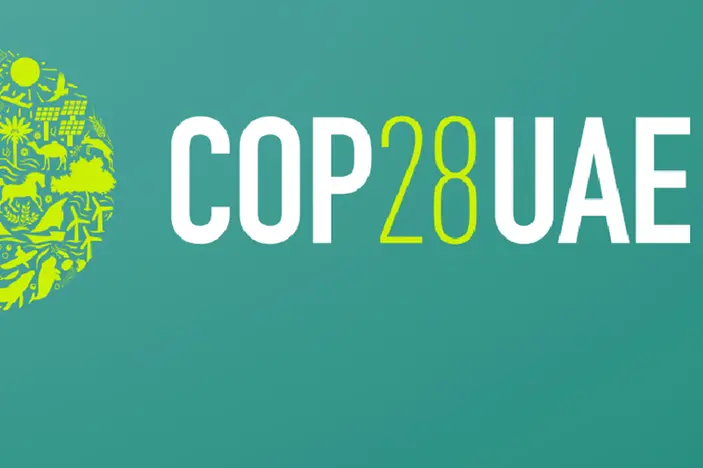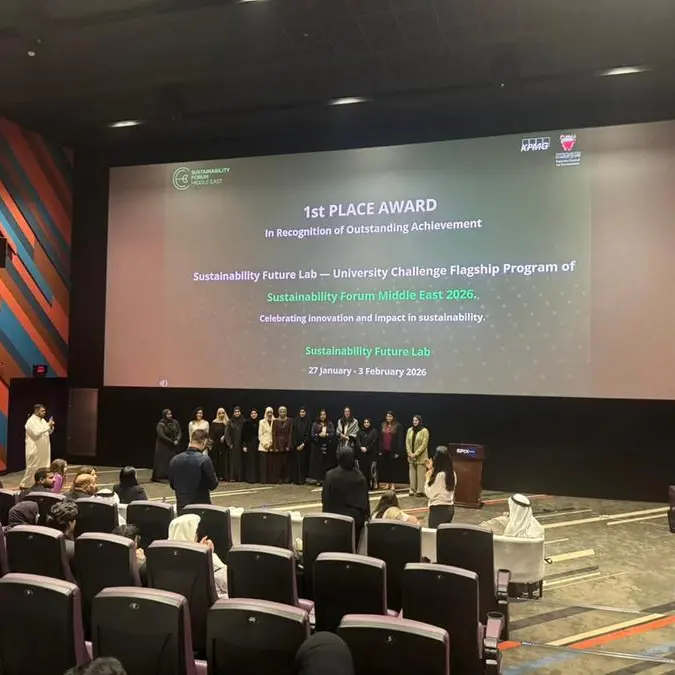PHOTO
Dubai:– GAIA, a climate change-focused blended finance platform led by MUFG, one of the world's leading financial groups, and FinDev Canada, Canada's bilateral development finance institution, has won the Best Blended Investment NDC (Nationally Determined Contribution) Initiative of the Year award at COP28.
The awards ceremony took place at COP28 on 5th December during the African Investment Earthshot Leaders Summit. The awards recognise both public and private sector institutions that are working to innovate and break new ground to mobilise private capital and private sector participation at scale, for Africa’s bankable NDC investment commitments and projects.
GAIA is a $1.48 billion climate change-focused blended finance platform that will offer long-term loans for climate change adaptation and mitigation investments in up to 25 developing countries across Asia, Africa, Latin America, and the Caribbean, making funding accessible through sources previously unattainable to participating countries.
Fumitaka Nakahama, Global Head, Global Corporate & Investment Banking Business Group, MUFG, said: “We are delighted that GAIA has been recognised for its ambitions to drive the transition towards a more sustainable, inclusive global economy. Using an innovative approach to blended finance, we are excited to witness the impact GAIA can have in helping to progress climate change adaptation and mitigation projects in regions where it is needed most.”
Lori Kerr, Chief Executive Officer, FinDev Canada, said: “I’m honoured to accept this award on behalf of FinDev Canada, alongside my colleagues from MUFG. This award recognises the innovative nature of the GAIA platform and the role it will play in helping to mobilise private capital in support of projects that contribute to climate action.”
The fundamental objective of GAIA’s platform is to employ its public-private financing capacity into meaningful, low-carbon climate adaptation and mitigation assets, across a range of climate change projects in vulnerable countries.
Overall, the platform will direct around 25% of investments towards Least Developed Countries and Small Island Developing States, ensuring that funding reaches the most climate vulnerable communities. Approximately 70% of total portfolio investments will go towards adaptation projects.
The United Nations estimates a financing gap of well over US $500 billion per year for climate projects in emerging markets over the next ten years.
GAIA will help bridge the climate finance gap by financing projects aligned with Nationally Determined Contributions (NDCs) and National Adaptation Plans (NAPs) with a target to support climate change adaptation (70%) and mitigation (30%) projects.
GAIA is committed to overcoming barriers that hinder private investment in climate change projects in emerging markets and pave the way for the creation of similar platforms which could lead to substantial private sector investments in various sectors, including sustainability, in developing countries which often have limited financing alternatives.
The African NDC Investment Awards recognise achievements across the main NDC project sectors and reward the governments, institutions, and individuals driving transactions and improving the investment readiness of Africa’s NDC projects, which require US $3 trillion of investment by 2030.
The awards are the only international, pan-African awards that recognise and reward both public and private sector institutions who are working to innovate and break new ground to mobilise investment and private sector participation at scale, for NDC Paris-aligned climate investment commitments and projects.
-Ends-
*This press release and any of the information contained herein has been prepared solely for information purposes. It does not constitute any offer or an invitation of any kind by or on behalf of MUFG or any of its affiliates which would be prohibited by applicable law.
Depending on your domicile or place of incorporation, this product/service/communication (the “Subject") may not adhere to any applicable existing or proposed principles, laws, rules, or regulations related to environmental, social, and governance (“ESG"), sustainability or corporate responsibility more generally.
It should be noted that no universally accepted global framework (legal, regulatory, or otherwise) currently exists, nor is there a market consensus in terms of what constitutes a “green", “sustainable", “responsible", “traditional", or equivalent “ESG" investment, communication product, or offering. Furthermore, no assurance can be given that such a universally accepted framework or consensus will develop over time. Although there have been regulatory efforts in certain jurisdictions and regions (in particular, in the European Economic Area) to define such concepts, the legal and regulatory framework is still under development.
Additionally, the lack of common or harmonised definitions and labels currently regarding what is considered “green", “ESG", “sustainable", “responsible", and other similar criteria, or clear guidelines on what these monikers mean may result in different approaches being taken by different institutions.
Alongside its sustainable financing activities, MUFG and its affiliates invest in and finance projects associated with a wide range of industries, businesses and jurisdictions including in, but not limited to, high-emitting and hard to abate sectors such as the energy sector. MUFG commits to achieve net zero emissions in its finance portfolio by 2050 and its own operations by 2030. MUFG's Carbon Neutrality Declaration Roadmap can be found here.
Accordingly, no assurance, warranty or representation can be given by MUFG Securities EMEA plc or by MUFG Bank Ltd. London Branch (together “MUFG EMEA") that any of their investments, products, communications, services or offerings will meet any or all expectations regarding “green", “ESG", “sustainable", “responsible", or other equivalently labelled objectives or that no adverse environmental, social, and/or other impacts will occur.
For media enquiries, please contact:
- Borouj Consulting
- Randa Mazzawi
- randa@boroujconsulting.com
About MUFG
Mitsubishi UFJ Financial Group, Inc. (MUFG) is one of the world’s leading financial groups. Headquartered in Tokyo and with over 360 years of history, MUFG has a global network with approximately 2,000 locations in more than 50 countries. The Group has about 160,000 employees and offers services including commercial banking, trust banking, securities, credit cards, consumer finance, asset management, and leasing. The Group aims to “be the world’s most trusted financial group” through close collaboration among our operating companies and flexibly respond to all of the financial needs of our customers, serving society, and fostering shared and sustainable growth for a better world. MUFG’s shares trade on the Tokyo, Nagoya, and New York stock exchanges.
Please visit our website for more information – mufgemea.com.
About FinDev Canada
FinDev Canada is Canada’s bilateral Development Finance Institution (DFI), supporting development through the private sector. We provide financing, investment, and blended finance solutions, as well as technical assistance and knowledge, to promote sustainable and inclusive growth in emerging markets and developing economies (EMDEs) aligned with the Sustainable Development Goals (SDGs) and Paris Agreement commitments. FinDev Canada is a wholly owned subsidiary of Export Development Canada (EDC). Find out more about FinDev Canada at www.findevcanada.ca.
About the NDC Partnership
The NDC Partnership brings together more than 200 members, including more than 115 countries, developed and developing, and more than 80 institutions to create and deliver on ambitious climate action that help achieve the Paris Agreement and the Sustainable Development Goals (SDGs). Governments identify their NDC implementation priorities and the type of support that is needed to translate them into actionable policies and programs. Based on these requests, the membership offers a tailored package of expertise, technical assistance, and funding. This collaborative response provides developing countries with efficient access to a wide range of resources to adapt to and mitigate climate change and foster more equitable and sustainable development.




















